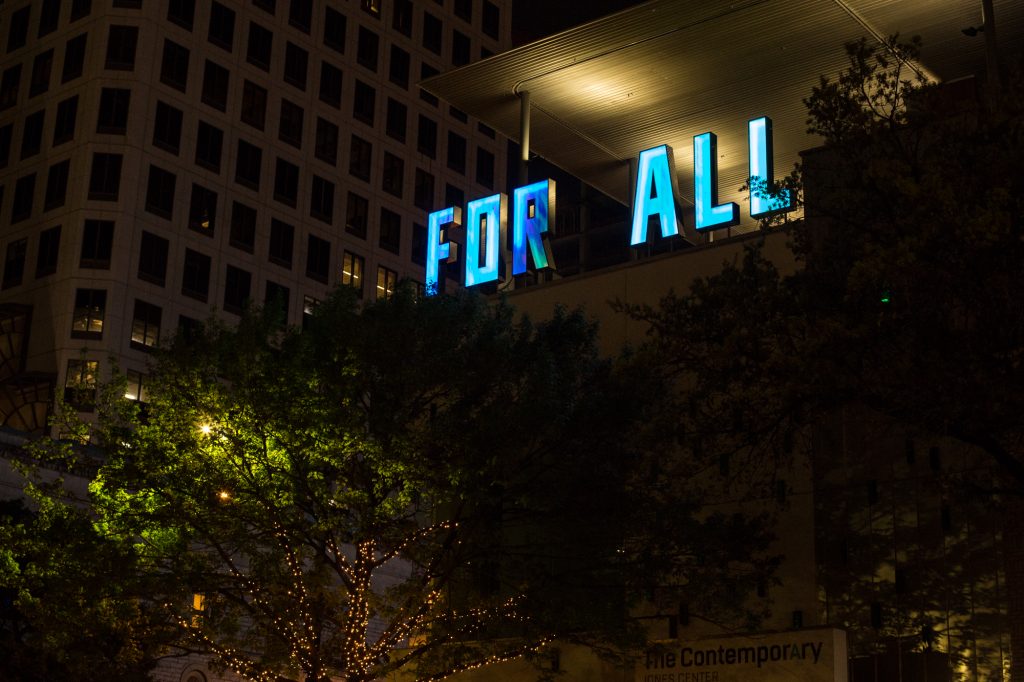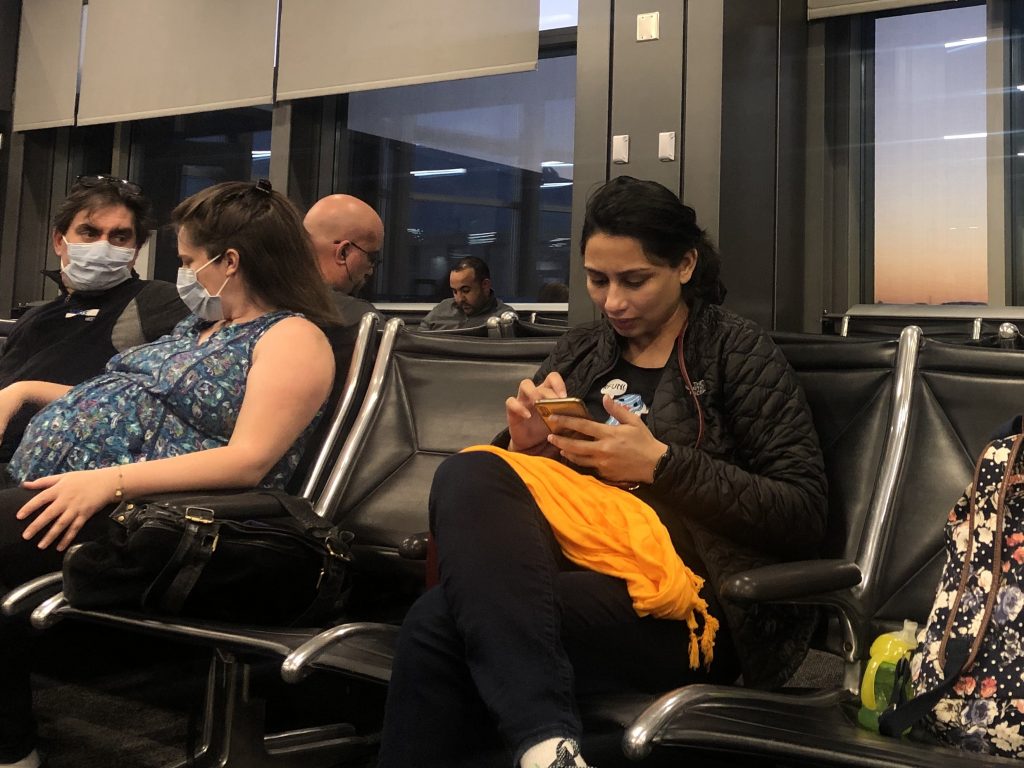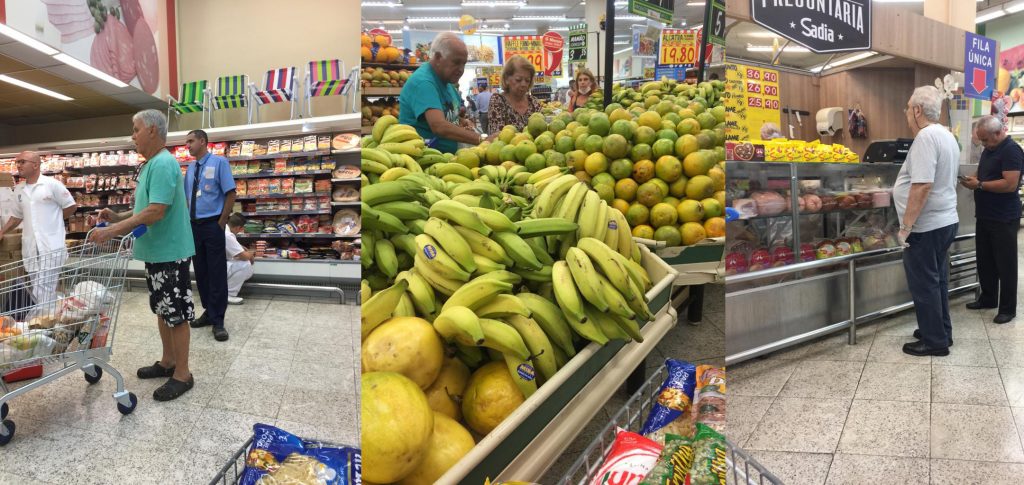Living Between Cities in Corona Times
My perspective on my two hometowns
Opinion
Downtown Austin. A homeless man sleeps on 6th Street. 03/29/20
My father lived through World War II in Belgrade. He and his family fought for food, dodged artillery shells, moved from city to city, lost friends and parents.
I am in my 40s, and in my lifetime, I never went through a natural disaster. I was born in Rio de Janeiro, Brazil, where there are no earthquakes, hurricanes or tornadoes. I came from a privileged upper-middle class family, we were safe from landslides that happen every year in March and drag favelas downhills. Tom Jobim wrote a song for those rains called “Waters of March.”
When I moved to Austin, Texas, the only real natural disasters were the heat of summers and rattlesnakes.
We are now living the COVID-19 pandemic, and this is an event that, like a natural disaster, reminds us that we humans are all the same, and all together. We don’t know when and how it’s going to end. As I am writing this, I have the feeling that we are barely getting our toes wet in this new reality. We are fighting a common enemy as we watch nations restructure their relationships and themselves. I wonder how commercial trends, health systems, airports, globalization itself and social relationships will change.

This event for me came with some personal challenges that unite a great part of my generation and mainly those in the condition of immigrants. Even if there was an emergency at home, we do not have the option of traveling.
I went to Tucson on February 26, and during my flights, a couple of people were wearing masks. There was still “no reason to be alarmed,” according to the federal government. But the following days changed a distant problem into a new, ever-evolving reality.

Brazilians and Italians share some aversion to rules. In addition to cultural issues, we have a divisive federal government right now – that of Jair Bolsonaro. I called my sister, who is a pathologist, and told her what I had been watching events unfold. In the national capital of Brasilia the president had said on March 10 that “this is all a fantasy supported by the media.” By that time Brazilians were unaware of what Americans were beginning to witness.
Next we saw the usual suspects: memes, jokes, and a flood of misinformation via WhatsApp, which is the most popular social media platform in Brazil. When confronted with fear, people tend to laugh, and no other nation does it better than Brazil.
“I am going nuts!
Go to work, stay home, die of the virus, die hungry, wife at home, kids jumping, cat meowing,
the biologist’s video, the doctor’s video, the epidemiologist’s video, the entrepreneur’s video, the nurse’s video, the WhatsApp group video, the pastor’s and priest’s video, the umbanda’s video, the economist’s video, the dentist’s video, the adventist’s video,
close everything, open everything,
you’re going to die, you’re not going to die,
go to the window, pick up the pan, do the pan-banging,
say thanks to the Lord,
make a rave on the stairs, go to the Umbanda meeting,
clean with bleach,
applaud the doctors, pray our father, ask for the Orishas help, applaud the garbage man, the nurses, the grocery store people, the people at the pharmacies, the drivers, the truckers, hashtag “Bolsonaro tem razao,” hashtag “fora Bolsonaro,”
use hand sanitizer, use liquid alcohol, while you’re up, drink a little,
wear a mask, don’t wear a mask, wear gloves,
old people on the streets, young staying home,
Jesus, when you’re done with all this, let me know.”
One day I realized that each country receives the virus in its own way like unhappy families, as Tolstoy wrote. I was watching this global movement from Austin, my thoughts vacillating between post lessons learned and future repetition of mistakes. For me, the feeling was one of powerlessness, and an unavoidable, ridiculous slow-motion fall.
During this time, in a matter of one week, my employments contracts and interviews were canceled. I decided to rent two rooms in my house and my annual spring cleaning turned into a serious task. All the while, my mom was in the back of my mind.
The first wave of information in Brazil lasted a couple of days in early March and involved conspiracy theories like “the Chinese are making a lot of money from this,” and “the pharmaceutical industry has created this virus.” Some denied the existence of the virus entirely. The contagiousness of these theories was many times greater than the virus.
I can’t pin-point exactly when the second phase arrived in Brazil, but it is clear that social isolation happened almost overnight. Cities like Rio began to impose a quarantine, which was reinforced by the local government, traditional and social media. The dramatic Italian images of lines of coffins and the rising U.S. death toll finally pushed cariocas to stay home. The caveat is that in Rio apparently the elderly were the last to observe the new rules: to this day, they are still out and about. Asking parents to stay home is not an easy task. My friend Bernardo Araujo asked his father “but why do you have to go to the bank now? Did you win the lottery?”

As days went by and the Brazilian president Jair Bolsonaro gave no directions regarding the pandemic, local governments, favelas’ drug dealers, entities and small groups initiated their own plans for reinforcing precautions. On March 22 Marcello Crivella, the mayor of Rio de Janeiro, ordered the closure of all retail outlets except pharmacies, medical supply stores, supermarkets, gas stations, pet hospitals and padarias (a kind of bakery typical of Brazil and Portugal).
As for my family, the most difficult task was to convince my mom that she had to move out of Rio. We insisted that she went to my sister’s house in Friburgo, a smaller city in the mountains, three hours away from Rio. Once she agreed she should go, we had to talk to her 2 caretakers. Would they go or stay? How much more were they willing to receive to spend time away from Rio? My sister works for a federal agency, and president Bolsonaro maintains to this day (4/2/2020) that workers should not change their routine. For a while, my sister thought about taking a leave of absence to be at home with our mom, but the uncertainty of her job under this government worried her. In the end, things turned out well, and we could take my mom and the caretakers to Friburgo.
Video circulated on WhatsApp in Rio showing a drone view of the city of Niteroi, adjacent to Rio (like San Francisco and Oakland). Author unknown. March, 2020
